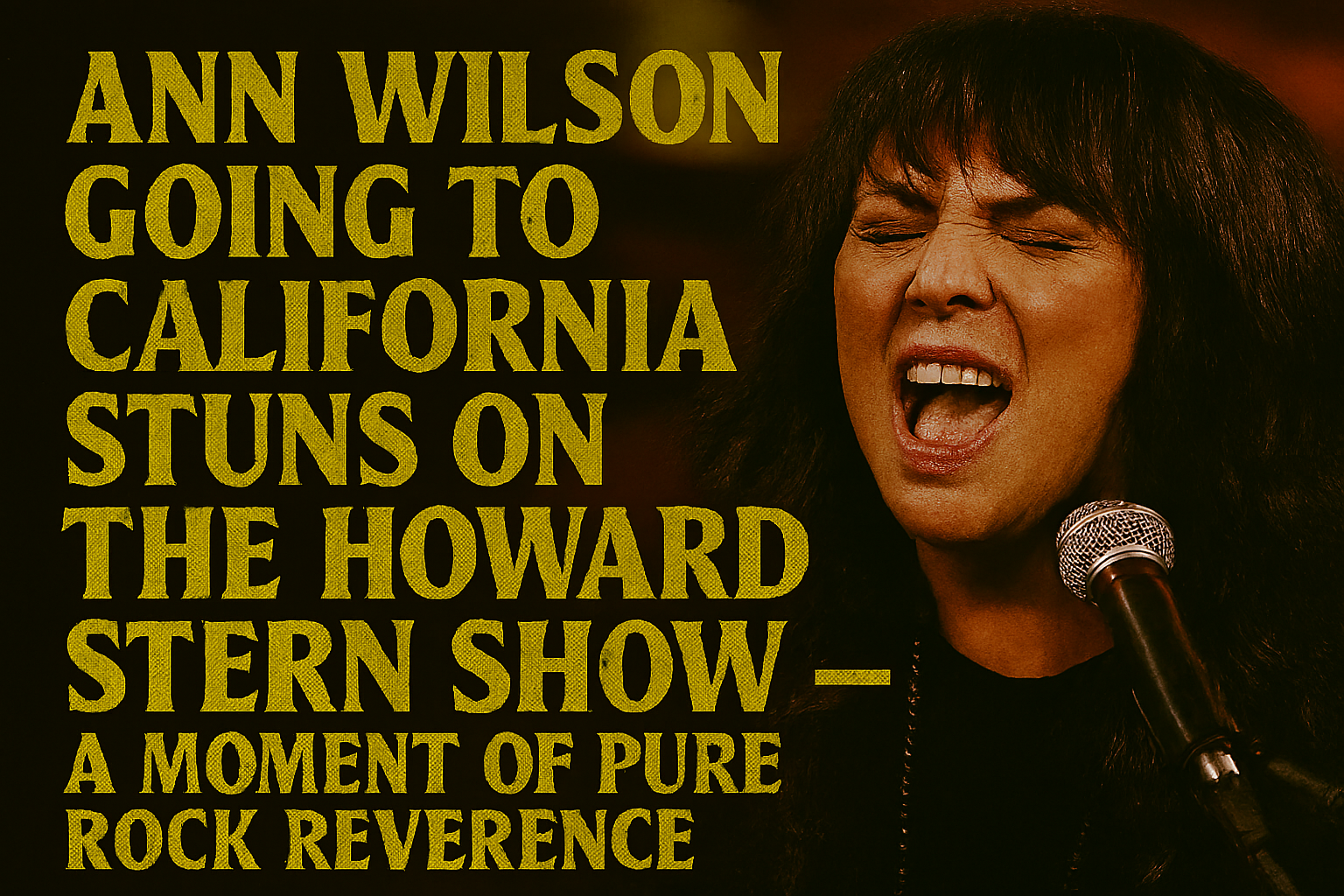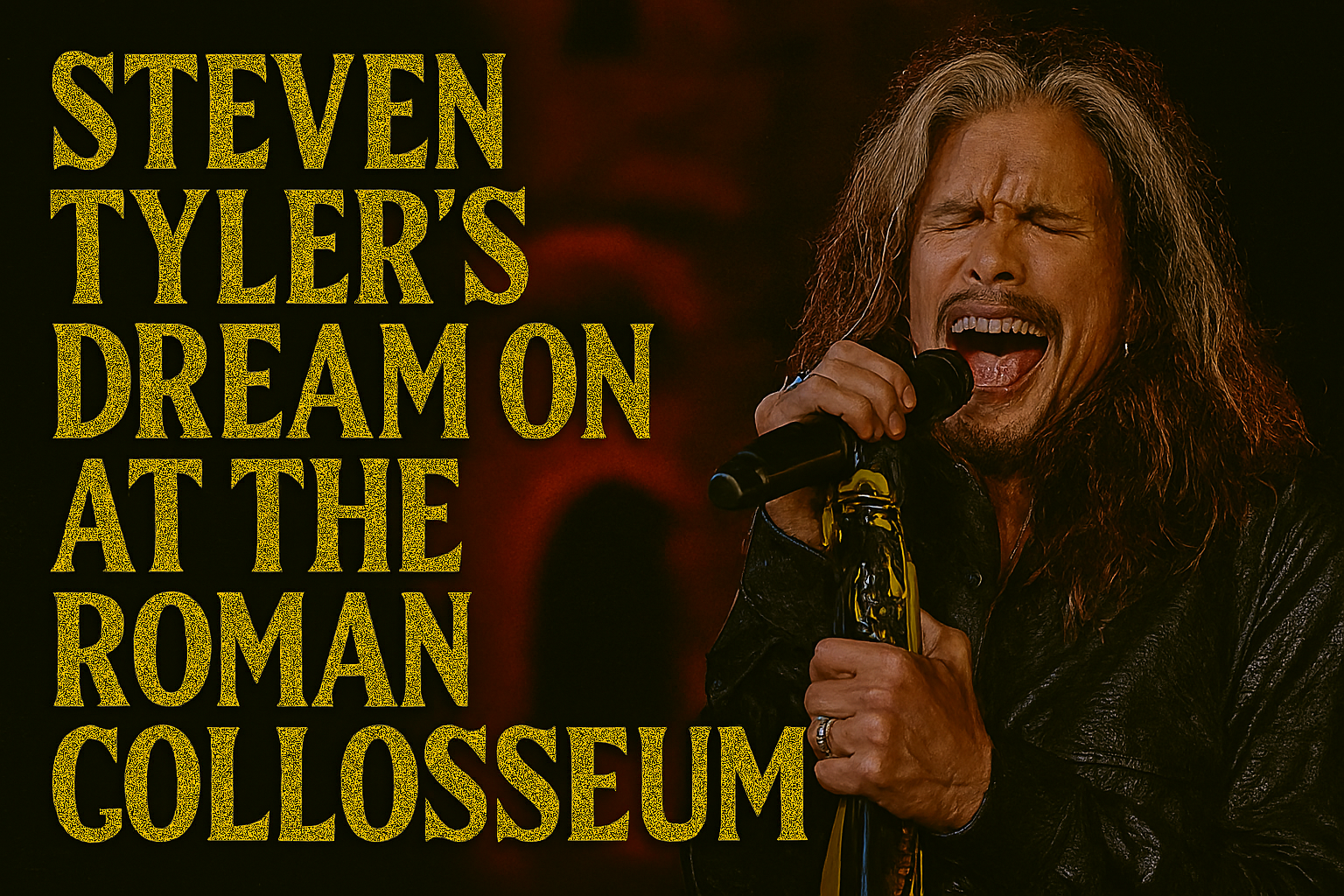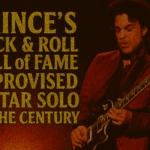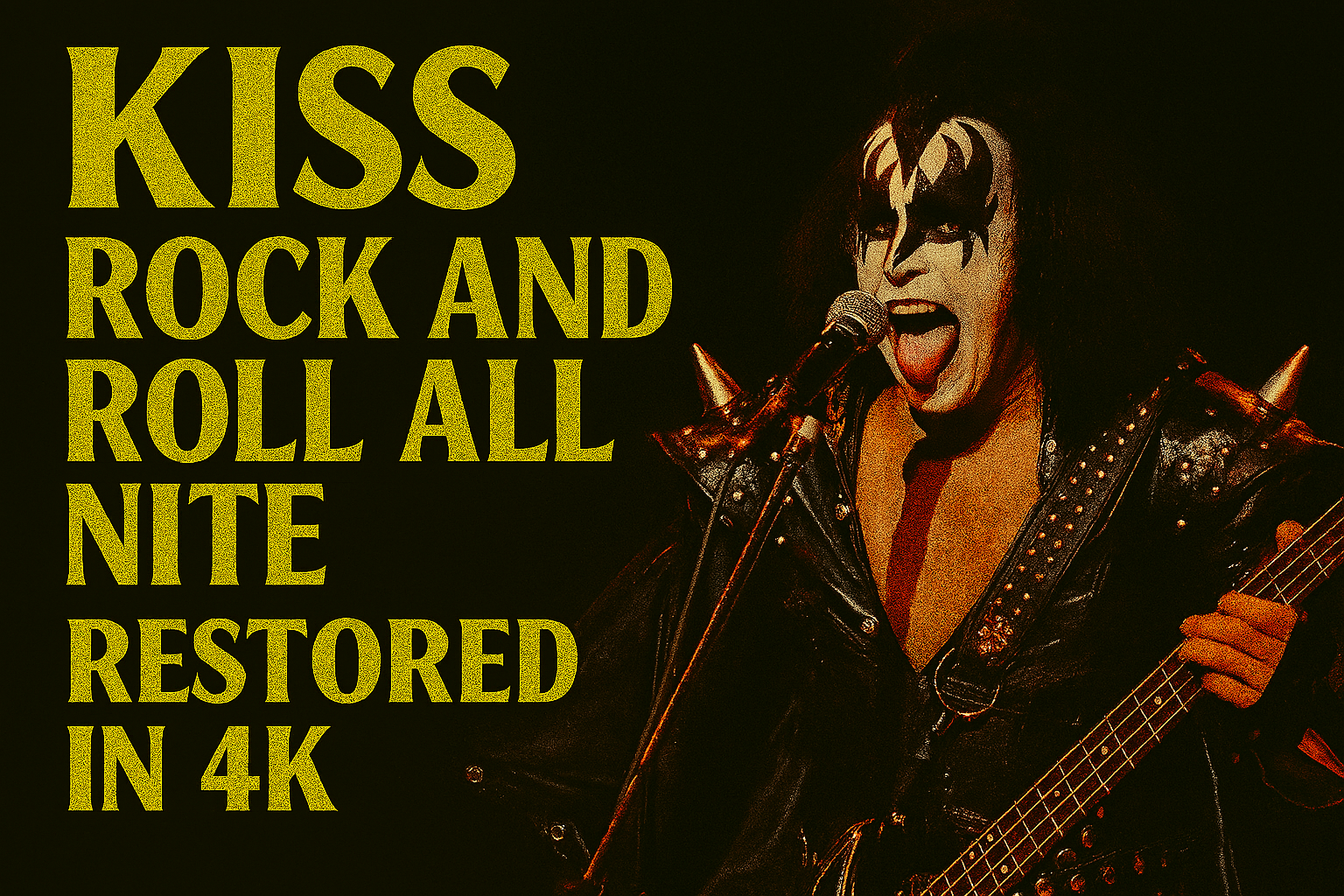When Ann Wilson of Heart stepped into the studio for her appearance on The Howard Stern Show, few could have predicted the emotional gravity she would bring to Led Zeppelin’s “Going to California.” As she began to sing, the room fell into a hush. No chatter, no movement—just silence, as her voice filled the space with haunting clarity.
From the first note, it was clear this wasn’t just a cover. It was a transformation. Wilson’s voice, seasoned by decades of rock history, carried a soulful weight that made every lyric feel lived-in. Her delivery was intimate yet commanding, drawing listeners into a quiet storm of longing, reflection, and grace.
She didn’t imitate Robert Plant—she honored him. Rather than reaching for Plant’s ethereal high notes, Wilson leaned into her own vocal depth, letting the song breathe through her. Her phrasing was deliberate, her tone rich and aching, and her interpretation deeply personal. It was as if she had taken the song’s emotional blueprint and rewritten it in her own language.
The studio, usually buzzing with Stern’s trademark banter, was still. Even Howard himself seemed momentarily speechless. The crew watched in reverent silence, visibly moved by the performance unfolding before them. Wilson stood grounded, eyes closed, her voice rising and falling like waves against a distant shore.
It was a masterclass in restraint. No theatrics, no overproduction—just a voice, a melody, and a moment. And in that moment, Wilson reminded everyone why she’s considered one of the greatest vocalists in rock history. Her ability to channel emotion, to make a song feel like a shared memory, is unmatched.
What elevated the performance even further was the reaction it stirred beyond the studio walls. Word spread quickly that Robert Plant himself had seen the clip and was visibly touched by Wilson’s rendition. Though he wasn’t present, the emotional resonance of her performance reached him nonetheless. For fans, this was a full-circle moment—one legendary voice honoring another, and receiving heartfelt recognition in return.
This wasn’t the first time Wilson had moved Plant to tears. Years earlier, Heart’s rendition of “Stairway to Heaven” at the Kennedy Center Honors had left Plant visibly emotional, a moment that became iconic in its own right. But “Going to California” felt different. It was quieter, more introspective. Less about spectacle, more about soul.
Wilson’s connection to Led Zeppelin runs deep. Before Heart became a household name, she and her sister Nancy were already immersed in Zeppelin’s music, performing covers and drawing inspiration from their sound. Over the years, Heart’s catalog has echoed Zeppelin’s influence—from soaring vocals to intricate acoustic arrangements. But Wilson has always brought her own spirit to the table, never merely replicating, always reinterpreting.
On Stern’s show, that spirit was undeniable. Her voice, now textured with time, carried a depth that few singers ever achieve. She didn’t just sing the song—she lived it. Each line felt like a reflection, a journey, a quiet reckoning. It was a performance that transcended genre and era, reminding listeners that great music isn’t bound by age or style—it’s bound by truth.
The emotional impact rippled outward. Fans who watched the clip online described it as “goosebump-inducing,” “a spiritual experience,” and “the best version since Zeppelin.” Musicians praised her ability to reinterpret the song without losing its essence. And longtime Heart fans saw it as yet another reminder of Wilson’s enduring brilliance.
For Wilson, the moment was more than just a tribute. It was a continuation of a lifelong dialogue with the music that shaped her. And for listeners, it was a reminder that some voices don’t just sing—they speak to something deeper. They carry stories, memories, and emotions that can’t be faked or forced.
“Going to California” is a song about longing, about searching for something just out of reach. In Wilson’s hands, it became a meditation on time, on connection, on the power of music to bridge generations. It was a moment of pure rock reverence—quiet, powerful, unforgettable.
And in that stillness, Ann Wilson didn’t just perform. She reminded the world why her voice still matters. Why it always has.









